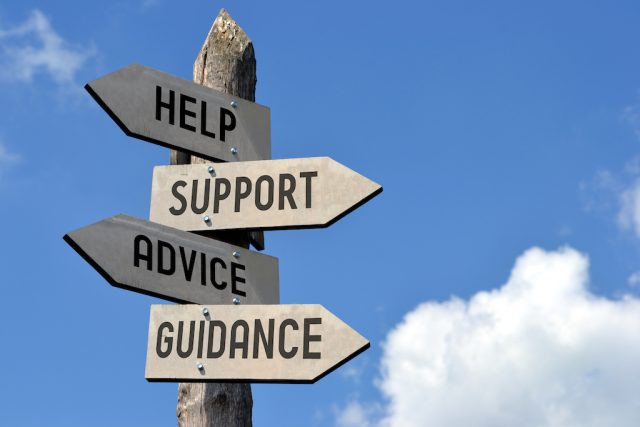Mortality and Mothers — Effects of Ostracism Over Generations
- 24
- Apr
A New York Times article about the mortality rate of Black mothers gives shocking credence to the concept of generational trauma; its injury is real and more harmful than we think.
It also helps me to understand why I’ve been unable to write a post in awhile. An aspect of depression had settled into my psyche, because I’m numbed by the rampant ostracism that denies my and my people’s humanity. This has been going on for centuries. (The most recent example is two men being arrested for no given reason while sitting in Starbucks.)
Why America’s Black Mothers and Babies Are in a Life-or-Death Crisis
The April 11, 2018 piece explains, “the disparity in death rates has everything to do with the lived experience of being a black woman in America.” Although the article tells the story of the role of doulas in preventing infant and mother mortality, it offers a much larger answer to the question of whether racism is harmful and how it shows up in Black women’s health.
Black infants in America are now more than twice as likely to die as white infants — 11.3 per 1,000 black babies, compared with 4.9 per 1,000 white babies, according to the most recent government data — a racial disparity that is actually wider than in 1850, 15 years before the end of slavery, when most black women were considered chattel. In one year, that racial gap adds up to more than 4,000 lost black babies.
The HealMobile is dedicated to improving the body-mind-spirit health of the people who need it most. These are the ones who, like me, are affected by and vulnerable to social and environmental conditions beyond our immediate control.
What I can do keep seeking support, commitment and actions that uphold my optimum health. I have seen this approach work on me and with my family. I didn’t have a doula when I birthed my two babies, but I have good friends who are doulas and mother’s milk/lactation advocates. Louisiana ranks 44th out of all 50 states in maternal mortality; black mothers in the state die at 3.5 times the rate of white mothers.
In 2014, [Monica Simpson, of SisterSong and Black Mamas Matter Alliance] testified in Geneva before the United Nations Committee on the Elimination of Racial Discrimination, saying that the United States, by failing to address the crisis in black maternal mortality, was violating an international human rights treaty. After her testimony, the committee called on the United States to “eliminate racial disparities in the field of sexual and reproductive health and standardize the data-collection system on maternal and infant deaths in all states to effectively identify and address the causes of disparities in maternal- and infant-mortality rates.” No such measures have been forthcoming.
Reading this piece depressed me no end. As the HealMobile I have tried for years but can no longer avoid talking about repair and healing unless I deal head-on with the dis-ease that plagues our very soul. This is not an issue of poverty, as the newest data shows:
Education and income offer little protection. In fact, a black woman with an advanced degree is more likely to lose her baby than a white woman with less than an eighth-grade education….
Dr. Arline Geronimus, a professor in the department of health behavior and health education at the University of Michigan School of Public Health, first linked stress and black infant mortality with her theory of “weathering.” She believed that a kind of toxic stress triggered the premature deterioration of the bodies of African-American women as a consequence of repeated exposure to a climate of discrimination and insults. The weathering of the mother’s body, she theorized, could lead to poor pregnancy outcomes, including the death of her infant.
It seems weathering the storms of our lives takes a deep toll, and is killing us. The toxic stress of discrimination and insults triggers premature deterioration in our bodies. My mother and her siblings weighed more than nine-ten pounds at birth. I weighed 8.2 pounds, and my daughter 7.11 pounds. Her son, my grandson, weighed 7.
4 pounds. My grandparents were immigrants from the islands, and the downward trajectory of birthweight could have been predicted as the piece reports:
A 1997 study published by two Chicago neonatologists, Richard David and James Collins, in The New England Journal of Medicine found that babies born to new immigrants from impoverished West African nations weighed more than their black American-born counterparts and were similar in size to white babies. In other words, they were more likely to be born full term, which lowers the risk of death. In 2002, the same researchers made a further discovery: The daughters of African and Caribbean immigrants who grew up in the United States went on to have babies who were smaller than their mothers had been at birth, while the grandchildren of white European women actually weighed more than their mothers had at birth. It took just one generation for the American black-white disparity to manifest.
Read the full Times story here, and read between the lines of the heartbreaking but triumphant story of Simone Landrum and her doula, Giwa. It is clear that we MUST create new systems for increasing health TO STAY ALIVE and thrive. Although I am not a doula, I bless them and will seek to align more closely with them.
[A] collective of 45 black and Latina doulas in Charlottesville [Va.], called Sisters Keeper … offers birthing services free to women of color. “The doula model is very similar to the community health worker model that’s being used a lot, and successfully, throughout the global South,” [Rachel] Zaslow says. “For me, when it comes to maternal health, the answer is almost always some form of community health worker.”
Community-based (read black-centered) health workers including doulas may use Reiki and holistic techniques, and more of these workers are needed. If you have thoughts about health work bearing on the mortality of women and babies, I would love to read them in the comments.
–Rev. Niamo Nancy Muid
Photo courtesy New York Times






